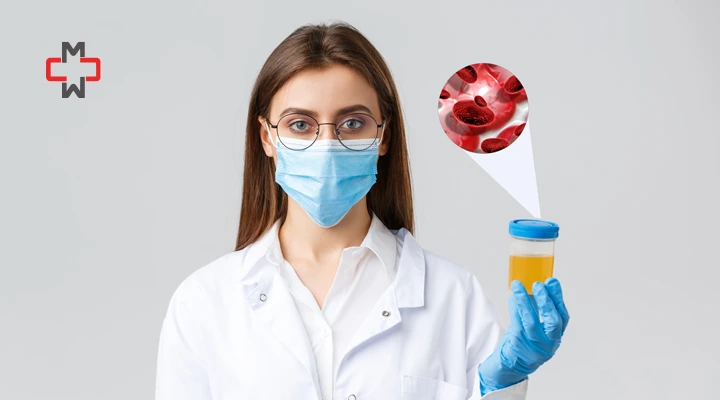Best Allergy Doctor NYC
Comprehensive Allergy Testing and Advanced Treatments
Searching for Allergy Relief in NYC?
Are you tired of dealing with sneezing, itchy eyes, and congestion? At Manhattan Medical Arts, we provide effective allergy treatments led by Dr. Syra Hanif, one of the best allergy doctors in NYC. Our goal is to help you breathe easier, feel better, and enjoy life again.
How Our Allergy Specialist in
NYC Can Help
Schedule
Your Consultation
Discuss your symptoms with our allergy expert to understand your triggers.
Comprehensive
Allergy Testing
We provide detailed testing to pinpoint allergens accurately. Testing includes skin prick tests, blood tests, and patch testing, ensuring precise diagnosis.
Targeted
Treatment Plans
We design treatment plans based on test results to effectively reduce symptoms and prevent future flare-ups.
Why Choose Dr. Syra Hanif –
Trusted Allergy Doctor NYC
Proven Expertise
With over a decade of experience, Dr. Syra Hanif is a trusted allergist NYC, specializing in advanced allergy treatments and chronic condition management.
Data-Driven Treatments
Our patients report up to a 70% reduction in allergy symptoms after completing treatment plans. (canyonviewent.com)
Personalized Approach
Every treatment plan is customized to target your specific allergens, providing more effective relief.

Types of Allergies Treated by Our
Allergy Specialist NYC
Respiratory Allergies
Pollen, dust mites, pet dander
Food Allergies
Peanuts, shellfish, dairy
Skin Allergies
Eczema, hives, contact dermatitis
Drug Allergies
Antibiotics, aspirin
Insect Allergies
Bee stings, wasp venom
Environmental Allergies
Mold, pollen
How Our Allergy Specialist Diagnoses Allergies
and Conducts Allergy Tests
Our allergy doctor NYC uses cutting-edge diagnostic methods to accurately identify allergens:
Skin Prick
Test
Detects allergens that cause immediate reactions.
Blood
Test
Measures allergy-specific antibodies for accurate diagnosis.
Patch
Testing
Identifies substances causing delayed skin reactions.
Effective Allergy Treatments and
IV Therapy in NYC
Our clinic offers advanced treatments that not only reduce symptoms but also improve overall health:
Quercetin + Vitamin C
Reduces inflammation and calms nasal passages. Ideal for seasonal allergy sufferers.
NAC
Breaks down mucus, making it easier to breathe. Recommended for those with respiratory symptoms.
IV Drips – Vitamin C & Glutathione
Combats oxidative stress and supports immune function. Research shows it can reduce allergy-related inflammation
by 30%.


NAD+
Repairs cells and reduces fatigue. Boosts overall health and recovery.
Thymosin Alpha 1
Enhances immune response, preventing severe reactions. Clinically proven to reduce chronic inflammation.
Real Patient
Real Success Stories
John’s Seasonal
Allergy Relief
John’s seasonal allergies were affecting his work and daily life. After 3 months of treatment, his symptoms reduced by 50%, allowing him to focus without constant sneezing.
Maria’s Food Allergy Transformation
Maria was diagnosed with severe food allergies. After 4 months of targeted therapy, she can now enjoy meals without constant fear of reactions.
Michael’s Eczema
Recovery
Michael’s severe eczema improved significantly after peptide therapy and IV infusions. He reports 80% reduction in skin flare-ups.
For more information, to discuss your allergy treatment plan, or to connect with our primary care team,
book an appointment with the best allergist NYC
Frequently Asked Questions
What Are the Signs of Allergies?
Runny nose, sneezing, itchy eyes, skin rashes, and difficulty breathing.
How Long Does Allergy Treatment Take?
Most patients notice significant improvements within 2-3 months of starting treatment.
Can Adults Develop Allergies?
Yes, adult-onset allergies are common, and our allergist NYC provides effective treatments.
Latest Blog Posts
Making primary care accessible









